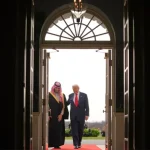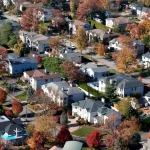
He may have faded from the headlines, given that he no longer faces a credible threat to his dictatorship and fresher international crises have replaced him the headlines, but socialist hardliner Nicolás Maduro is still leading Venezuela — and he’s still a danger to his country and the world.
Thankfully for his neighbors — particularly Guyana — the United States military has their back.
After calls by Maduro to seize oil-rich territory from its smaller South American neighbor in recent weeks, a U.S. flyover of Guyana’s border region on Thursday showed Maduro’s thugs in Caracas that America still means business.
“In collaboration with the Guyana Defence Force (GDF), the U.S. Southern Command (USSOUTHCOM) will conduct flight operations within Guyana on December 7,” the U.S. Embassy in Guyana said in a news release.
“This exercise builds upon routine engagement and operations to enhance security partnership between the United States and Guyana, and to strengthen regional cooperation.”
The embassy added that “USSOUTHCOM will continue its collaboration with the GDF in the areas of disaster preparedness, aerial and maritime security, and countering transnational criminal organizations.
“The U.S. will continue its commitment as Guyana’s trusted security partner and promoting regional cooperation and interoperability.”
Not mentioned in the statement, but underlined by recent events, is that a potential border conflict has been in the works between Guyana and Venezuela over the Essequibo region, which CBS News notes “has been administered and controlled by Guyana for more than a century, although Venezuela also claims the disputed area.”
“Venezuela recently conducted a referendum, which it claims citizens supported, that aims to give Venezuela authority over the Essequibo region,” CBS News said in a Thursday report. “Guyanese officials said in response that the country is preparing to defend itself and its borders in case of an invasion.”
Will a war erupt in South America?
Yes: 100% (1 Votes)
No: 0% (0 Votes)
The current borders were set by international arbitrators in an 1899 ruling, according to CNN. But on Tuesday, Maduro told legislators in his country they should set aside that ruling and accept a “new map” that includes the Guyanese territory.
Even with its recent difficulties — Venezuela’s troubles are so great that the United Nations reports it’s the site of “the second largest international displacement crisis in the world with 7.3 million Venezuelans displaced globally” — it still remains an exponentially more powerful nation militarily than Guyana does.
As of 2019, according to Newsweek, Venezuela’s armed forces had 515,000 personnel with about 130,000 troops on the front lines. Compare this to Guyana’s military strength of roughly 3,000 personnel in the same year, according to an analysis by Macrotrends.
However, that massive numerical advantage is totally useless if the United States lends some measure of support to Guyana in the event of an invasion — which, given the flyover, seems like a given.
Somewhat unsurprisingly, Venezuelan officials complained loudly about the show of force.
“This unfortunate provocation by the United States in favor… of ExxonMobil in Guyana is another step in the wrong direction,” said Venezuelan Defense Minister Vladimir Padrino Lopez in a statement on social media, according to Barron’s.
“We warn that we will not be diverted from our future actions for the recovery of the Essequibo,” he added.
Esta infeliz provocación de Estados Unidos a favor de los pretorianos de la ExxonMobil en Guyana es otro paso en la dirección incorrecta. Advertimos que no nos desviarán de nuestras futuras acciones por la recuperación del Esequibo ¡No se equivoquen! ¡Viva Venezuela! pic.twitter.com/1UIfPNQODY
— Vladimir Padrino L. (@vladimirpadrino) December 7, 2023
However, it seems unlikely that the Venezuelan government would risk trying to take a region of Guyana that’s home to about 125,000 of the country’s roughly 800,000 citizens if it was assured of armed conflict where the United States commits some aid and training — if not directly contributing troops, which could be problematic in terms of a longer conflict — to the Guyanese. And that does appear to be the tack President Joe Biden’s administration is taking with the crisis, given that Secretary of State Antony Blinken told Guyanese President Irfaan Ali that America has “unwavering support for Guyana’s sovereignty.”
Of course, there’s potentially something to be said for the fact that the Biden administration’s weakness on foreign policy could be seen as a factor in the saber-rattling from Caracas to begin with, as it has been an inducement for the likes of Vladimir Putin and Hamas to take on Ukraine and Israel, respectively. In this case, though, the White House seems to be signalling it will both speak loudly and carry a big stick in the region.
President Ali also underlined to CBS News that Guyana’s “first line of defense is diplomacy” and that the country had reached out to allies in the hope “they can encourage Venezuela to do what is right, and ensure that they do not act in a reckless or adventurous manner that could disrupt the peace within this zone.”
And, at least at the moment, Venezuela seems willing to sit down and talk about it.
Reuters reported on Saturday that Maduro would meet with Ali on Thursday for bilateral talks, with Ali’s office emphasizing that “Guyana’s land boundary is not up for discussion.” Venezuela, meanwhile, said the talks were “in order to preserve our aspiration to maintain Latin America and the Caribbean as a zone of peace.”
All Maduro and his country have to do to ensure that outcome, of course, is nothing: no invasion, no flimsy plebiscite pretext to take the territory, no war for oil. If he refuses, all bets are off — and Guyanese pilots have both extra training and backup if things get hairy.






